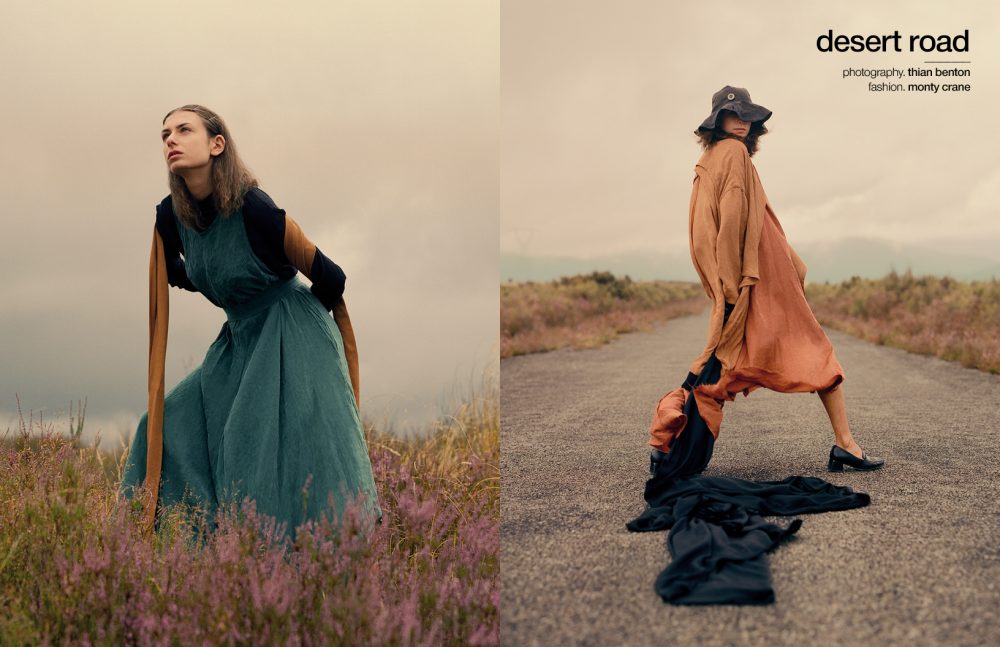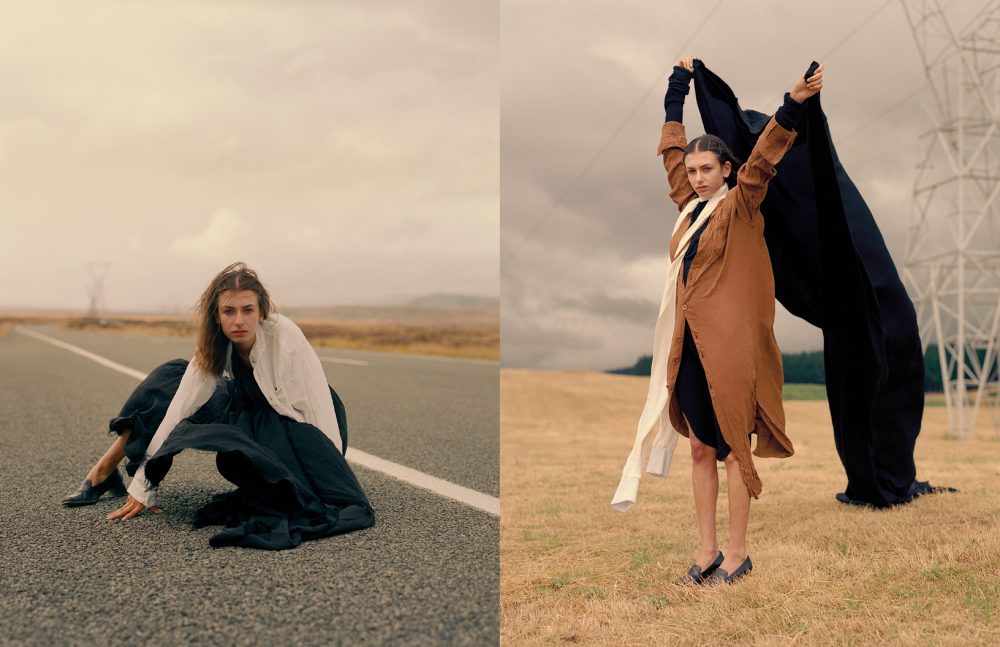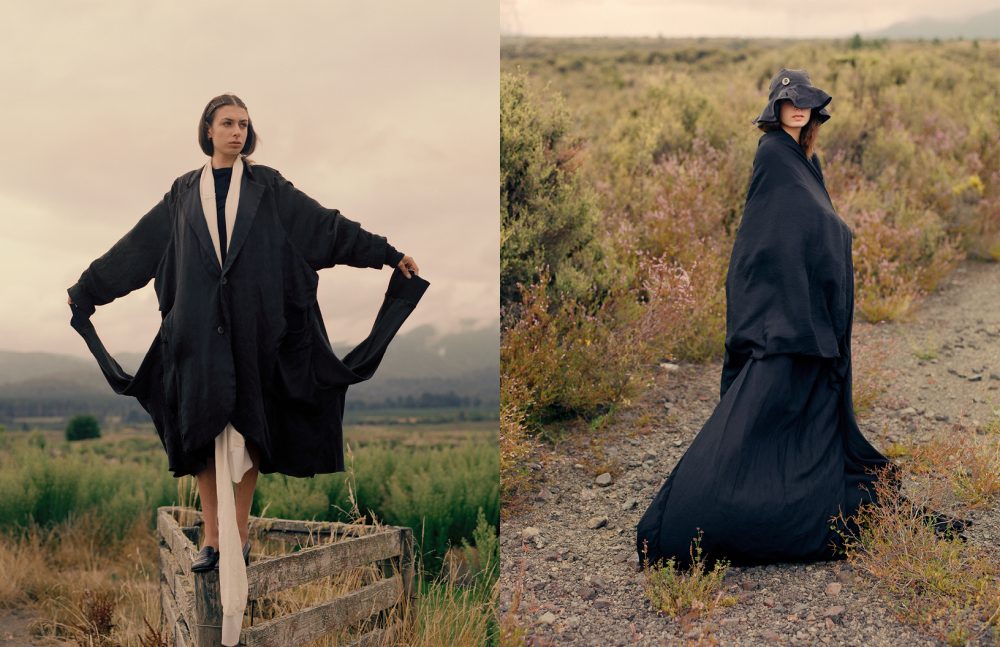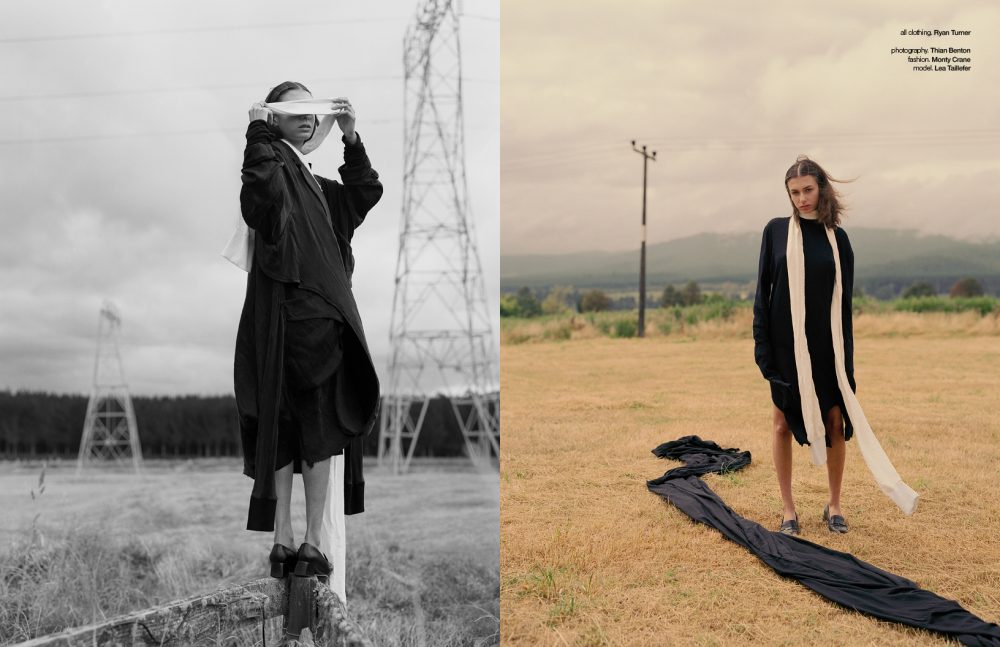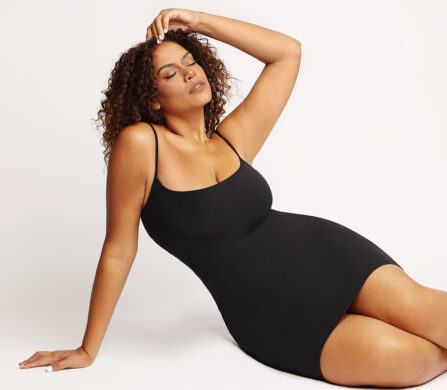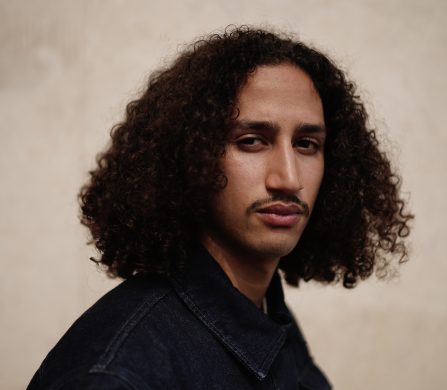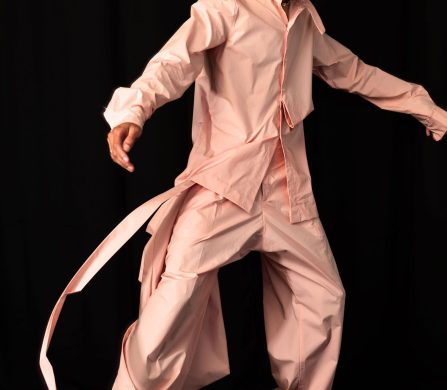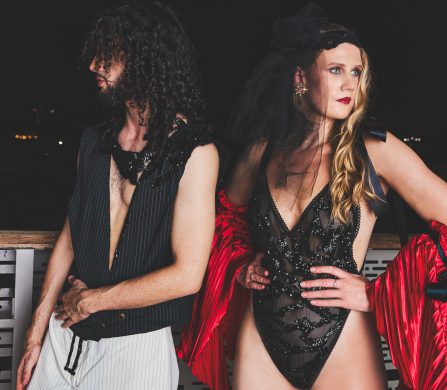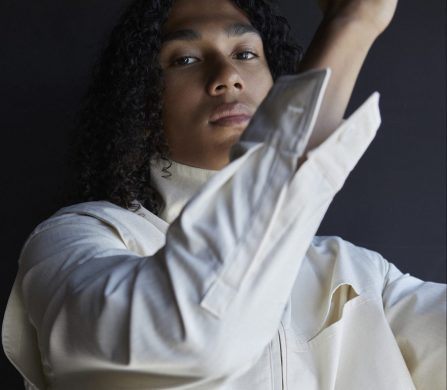The latest collection from New Zealand-based designer Ryan Turner is a departure. Turner, whose esteem has been building since his showing at 2018’s New Zealand Fashion Week, previously worked only in black and dark colours, allowing the layered textures and patterns of his designs to tell intricate, weaving stories across a range of silhouettes.
Now, however, his palette has shifted. Incorporating influences from Māori, European and Japanese cultures, the resultant androgynous collection is a colourful celebration of life, confidence and strength, blending innovative pattern-making with traditional and commercial styles and finishes. We spoke to Turner about his history with fashion and the details of his new collection.
What is your history with fashion, and how did you come to be a designer?
As a young child, my mother used to sew at home with all three kids to help make extra money to feed us and pay the bills. Growing up, I was always inspired by mum and how she could turn any old bit of material into an amazing garment that was truly individualised to her and fit her like a glove. I suppose in a sense it wasn’t fashion I was interested in but more the ability to create something beautiful out of nothing when you just couldn’t afford to buy clothes. Later in life I initially struggled to find my niche, intending to study psychology and philosophy at university, but I left the foundation course after a semester.
Through finding like-minded friends with their own individual style, I discovered clothing and design as a form of self-expression and way of working through mental health issues. It was a refreshing shock to my system. I enrolled at university again, this time to study fashion design.
A few months into uni I had unintentionally created a collection through exploring different shapes and techniques and, basically, just not following what the lecturers were trying to teach me. It was fantastic to finally be able to make clothes… I just didn’t want to stop. A few weeks later, I had a store on K’ Road wanting to sell my work. This was insane to me as I was just making things to play around with, but they sold the entire collection and another two I did that year, so I suppose it was then that I knew this was what I really wanted to do.
I eventually interned with Kiwi designer Jason Linguard, helping out with collections, pattern-making and orders. The experience also taught me how to run a small fashion business. Without that, I would be jumping into this blind. I haven’t looked back since.
Your brand specialises in androgynous clothing. Did you know you wanted to make androgynous clothing from the beginning or was it something you discovered?
Androgyny has always been a fundamental aspect of my designs, and despite having ambitions to be able to craft tailored menswear, this was always more of a technical ambition than a creative one.
I found it limiting to restrict myself to gendered shapes and designs when I could instead communicate and create for everyone through my work with comfortable and accessible designs. Freeing [myself from] restrictions on particular sizes and shapes allows me to focus on other elements like fabric and fluid silhouettes, which are things that are universally appreciable across the gender spectrum. Eliminating the gendered tag from my work I believe allows each piece to have its own identity instead of one that is shackled by the baggage that comes with an association like ‘menswear’ or ‘womenswear’.
You are Māori and were the first Māori designer to be featured in New Zealand Fashion Week. How does that influence your design choices?
Māori values like Whanaungtanga (a sense of belonging) and Kotahitanga (unity) have been influential in my open and inclusive design philosophy, and I adore the idea of creating a Whanau (extended family) through my work. I believe that clothing is about communication and community, and I want those who wear my clothes to feel like they can associate themselves to the same tribe that I do.
I hope Māori representation continues in places like New Zealand Fashion Week, and that Māori designers can be inspired by the opportunities granted to me.
While previous designs seemed to be darker in focus, you’ve recently embraced more colours in your work. Was there anything that motivated this change? How have you found that it has affected your thinking when it comes to design?
A focus on darker silhouettes and tones was particularly informed by a dedication to fabric and silhouette, alongside darker personal issues that I have faced in my past. I didn’t feel the need to interrupt the most crucial elements of my designs with distractions from colour or pattern.
Recently however I have found that my fabrics can take on a new life when imbued with bright, radiating colour, and speak different things than when done in just black. Using sun oranges and deep sea greens helped me channel elemental concepts that have been on my mind. Walks through nature and the occasional retreat to the country have me more in touch with the world around me, and it felt right to include these feelings in my work.
Black will always be at the core of what I do, but it is time to experiment and discover beyond.
What’s been inspiring you recently?
My inspiration comes from all over the place really, there’s never one thing that I draw inspiration from. I do tend to design from a feeling or from an emotion and then I play with how I can represent what this feeling is through cloth and form. I think you could almost say I design from all my insecurities, my confidence, my love for different ventures and just a general freedom for not just existing but living.
We’ve heard that you incorporate the Japanese wabi-sabi aesthetic into your designs. What does that mean to you and how does it impact your work?
Embracing ideas of imperfection and impermanence that wabi-sabi represents is core to the way I create. Raw edges and holes add to the deconstructed look of the pieces, and also make their owners feel freer to wear the clothes without worrying about ruining them. Comfort is about acceptance of oneself and the things one associate with, and allowing your clothing to be flawed or unrefined can allow yourself to come to terms with your own faults and asymmetries. I don’t want people to feel precious in their clothes. Life is made to be lived in.
What is the mentality of the ideal Ryan Turner wearer?
Open minded and free.
Where do you see the brand going in the future?
To be quite honest, I’m really not too sure. There is a lot I have to give to the world and I would love to say that I would like to change the face of fashion both here and abroad, but there are so many amazing designers in the world already doing this. I would just like to have the opportunity to share clothing that directly reflects my inner thoughts and feelings, almost a capsule of my life at that moment in time. Seeing people on the street wearing my clothing gives me utmost joy, and having more and more people engaging in this would make me satisfied with what I have created.
Discover more about Ryan Turner here and make sure to follow the brand on Instagram.
This Schön! online exclusive has been produced by
photography. Thian Benton
fashion. Monty Crane
model. Lea Taillefer












